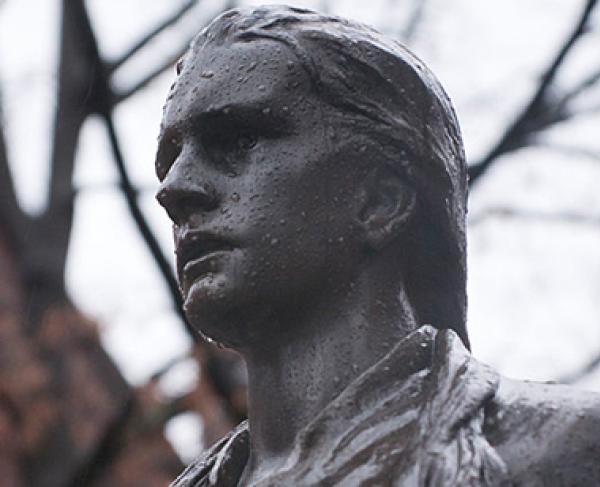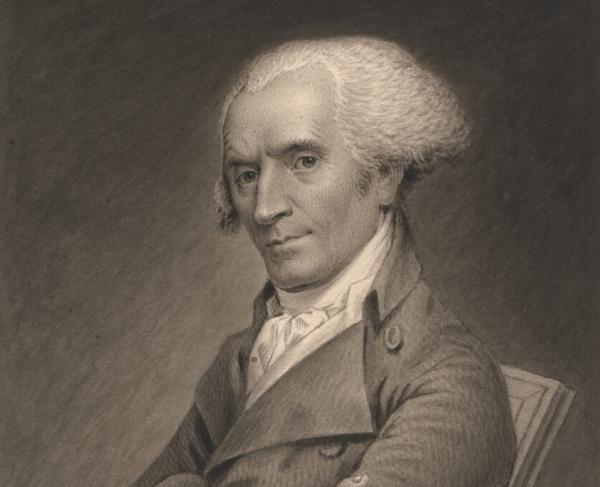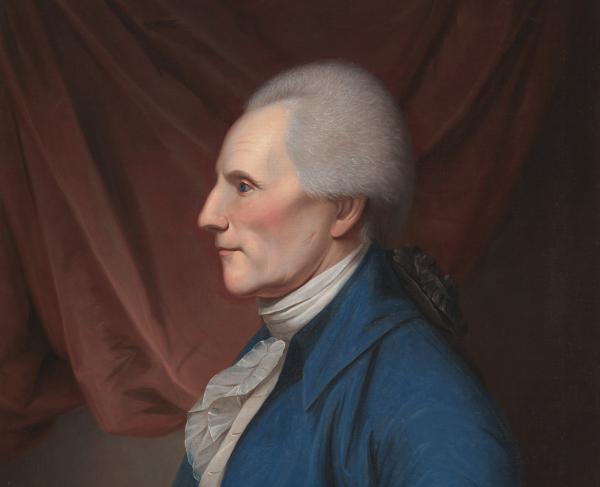Nathan Hale

Nathan Hale was born on June 6, 1755 in Coventry, Connecticut to Deacon Richard Hale and Elizabeth Strong. He came from a strongly religious family with many reverends, ministers, and later, activists for social causes such as abolitionism.
At fourteen years old, Hale was sent to Yale College in 1769. Here, he belonged to the Linonian Society at the school which debated topics such as astronomy, mathematics, literature, and the ethics of slavery. Hale did very well at Yale, graduating with first-class honors in 1773 and became a teacher. Also, while at Yale, he met a classmate by the name of Benjamin Tallmadge.
When the American Revolution began in the spring of 1775, Hale joined a Connecticut militia unit and within five months was elected first lieutenant. The company fought at Bunker Hill but Hale remained behind, possibly hindered by his teaching contract in New London was yet to expire. In July, his friend and former classmate Benjamin Tallmadge sent Hale a letter to convince him to fight. The letter worked, and Hale accepted a commission as first lieutenant in the 7th Connecticut Regiment.
When the Continental Army moved to New York to defend the city from a British attack, Hale went in the ranks. The defense failed. Washington needed information about troop movements and asked for volunteers to stay behind for the dangerous intelligence gathering mission. Hale volunteered, and Washington accepted his service. When he entered the British controlled city in September 1776, Hale had disguised himself as a teacher looking for work.
Unfortunately, Hale did not operate long. There are a few stories as to how Hale was discovered. One written by a Connecticut shopkeeper and loyalist stated that Major Robert Rogers of the Queen’s Rangers recognized Hale in a tavern and approached him pretending the be a Patriot. When Hale exposed himself, Rogers and his men apprehended Hale in Queens. Another story tells that Hale’s Loyalist cousin Samuel Hale turned him in.
At the time, spies were hanged as illegal combatants. The British held Hale in captivity for some days, and a British officer wrote how well Hale composed himself. On the morning of September 22nd, Hale marched to the Park of Artillery and was hanged at the age of twenty-one.
There are no official records of Hale’s speech before his hanging. Though his last words may have been longer than those remembered, one line in particular stood out: “I only regret, that I have but one life to lose for my country.” Over the years, many have doubted the famous line; however, regardless of how those view it, the words have become synonymous with Nathan Hale.


